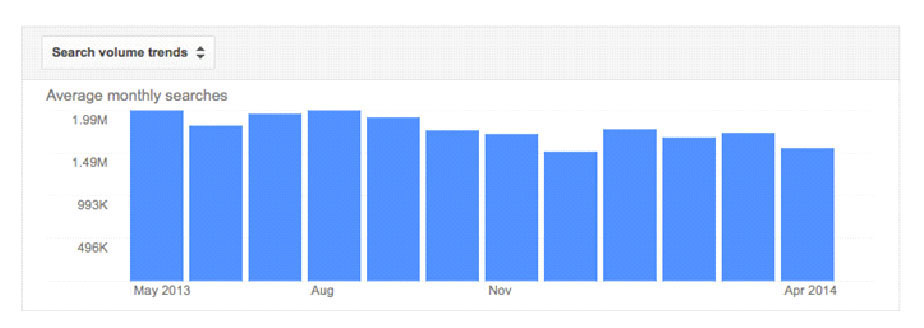
4 Tips to Keep Your Search Strategies Up-to-Date
Search engine optimization (SEO) is consistently evolving, including how it’s referenced. “Most people have migrated to the term ‘search’ or ‘integrated marketing,’” says online marketing consultant and WebScout founder Laura Greeno. Buzzwords aren’t the only aspects of SEO that have evolved since 2006, which Greeno refers to as the time of smoke and mirrors. To keep your ‘search’ skills up-to-date as well, follow these four tips:
Tip #1: Have an integrated approach
SEO strategy used to be divorced from a content marketing strategy. Sites like Copyblogger that emphasize creating quality content, were not nearly as ubiquitous as say, SEO experts offering to “optimize” your text with keyword stuffing (which is now considered a big no-no).
Although many people are much savvier these days, due in no small part to Google penalties and algorithm updates, some still see SEO as wholly separate from other marketing efforts.
“In order to drive sustainable marketing today, you really need to have a fully integrated approach, and search marketing has to cross all those facets of marketing efforts,” Greeno explains. That means that you’re thinking about search (and what people are looking for and would be interesting to them) throughout your entire marketing scope: articles, press releases, social media, and even offline. The topics covered in all aspects are consistent.
Although it’s important to know which topics people are searching for, this goes above and beyond simply looking at keywords. You’re looking for what people are interested in learning and how your content can solve their problems. Using social media as well as engagement with posts on your site (and offline) can help you get to know your readers and guide your content. This goes beyond just figuring out which combination of keywords is optimal, to really understanding potential customers.
Greeno is quick to point out that search crosses into all the different efforts and cannot exist all by itself. She predicts that SEO may even disappear as a term as small businesses realize just how integrated it is. Creating and distributing valuable content to the right audience is far more important than optimizing for search, but combining all these efforts is even better.
Tip #2: Use synonyms, rather than just keywords, in your content
“Google has evolved over the last 18 months or so with understanding some of the synonyms that go along with keywords,” Greeno explains. ‘Inventory management,’ for example, may be a high volume phrase according to Google Adwords, but Google now also understands phrases like ‘inventory control’ or ‘inventory software’ or ‘management of inventory.’
In the past, content creators would find a perfect text URL and use it to link back to certain sites or pages on their blog. “Today, that’s really almost opposite,” says Greeno. Google recognizes that when you’re doing that exact match, and if you do it too often, it looks like you’re trying too hard. Greeno recommends using keywords for only around 20 to 40 percent of links, and using company names or even something like ‘click here’ or ‘learn more’ for the remaining 60 to 80 percent of links. Search engines will now recognize the synonyms around each keyword phrase and see it in context, recognizing what you’re talking about in a page. That means that if you’re writing for humans, search engines are more likely to understand.
Tip #3: Find the right frequency
Continuously creating and promoting great content means everything. “Eighty percent of what SEO is today is content marketing,” says Greeno. Social media is a big piece as well, since it can help create awareness of what you wrote. Viewing social media as a distribution channel (where shareable content, and to some extent, hashtags are digital currency) will help you with your content marketing efforts. The more high quality and useful your posts are, the better they’ll do. And making sure that you come up with a regular schedule is crucial. That way, readers will know when to expect new content and might even look for it on those days.
Tip #4: Pay attention to some of the technical details
As Google becomes more intuitive, it’s worth noting there are still a few technical factors you should keep in mind—so don’t skip them altogether! Writing web-friendly headlines, using keywords in your URL (see advice from above), and having a fast website load time are still important.
Bottom line
As search continues to evolve, remember that the purpose is to enable readers to make connections, find information they’re looking for and find the best answer to their questions. Keep that in mind and you will quickly find your way towards integrated marketing success!
For more great search engine optimization tips, grab our free Beginner’s Guide to SEO.
Want more marketing tips and tactics? Sign up for the free VR Buzz.
© 2014 – 2018, Contributing Author. All rights reserved.




